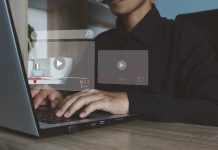Effective communication is an essential skill that students must obtain. Communication helps students to interact with a teacher and classmates and thus improve their academic performance. On the contrary, students lacking practical communication skills risk falling behind their classmates, experiencing emotional exhaustion, or withdrawing from the educational setting.
How Communication Skills Help Improve Comprehension and Retention of Information and Facilitates Active Participation in Classroom Discussions?
Communication skills assist in improving comprehension and retention of information because when we speak, listen, communicate clearly, and comprehend what we are talking about positively impacts our minds. Live communication, when we focus on listeners and when listeners concentrate on the speaker’s speech, helps to expand brain capacity and improve memory. Students need to have an excellent memory to succeed in their studying process.
Each student strives for excellent academic performance, and communication skills can help them reach their goals because it improves their attention. When students are attentive, they involve their mind in learning, strengthening their vocabulary and communication skills.
How do Communication Skills Help Strengthen Relationships with Teachers and Peers?
Students need a more in-depth and practical understanding of the subjects they are studying in schools and universities. They must communicate their subjective and objective doubts with the lecturers to get the most out of their lessons. Communicating and asking questions to a teacher help them understand what areas of the subject were misunderstood and signalizes that there is a necessity to focus on it better.
Moreover, replying to students’ answers allows teachers to explain information in their style, simplifying the understanding of the subject. Unfortunately, most students are intimidated to ask questions because of hesitation or low self-esteem. However, not asking questions and communicating poorly with teachers affects students’ academic performance. Instead, effective communication results in gaining higher marks.
Effective communication skills also help students to build friendly relationships with their classmates. Studying is often associated with stress, while good friends at school can help relieve this stress and make learning more exciting and funny. Moreover, an educational setting can also be a competitive environment, so effective communication is an excellent tool for coping with challenging situations.
| You might also like: |
How do Communication Skills Enhance Critical Thinking and Problem-Solving Abilities?
Communication is sometimes reffered as the “foundation” of critical thinking since it involves thinking profoundly and arranging your ideas into well-organized phrases. A person’s capacity to use necessary thinking skills allows them to analyze any scenario or circumstance. After that, their communication abilities make effective negotiation of their ideas possible.
Communication is not only about speaking, but it also involves listening skills. It is the key to unlocking other people’s ideas to provide crucial information. The four styles of listening—appreciative, empathetic, comprehensive, and critical—make a person an excellent communicator. Effective communicator often possesses vital thinking skills. These skills allow them to visualize situations from different perspectives and present their outcomes. Critical thinkers are not frightened by others or unfavorable conditions. A critical thinker can establish a logical link between ideas and reality via the assimilation of concepts in accordance with data analysis and logic.
Why are Communication Skills Important for Creating Academic Presentations and Written Assignments?
Communication skills are essential for creating presentations and written assignments. To do a presentation or write an assignment, it is necessary to have the ability to present your ideas in a well-structured manner. People who are good speakers are used to expressing their ideas and thoughts in an organized way. So, effective communication skills are essential for academic presentations and written assignments.
Why are Communication Skills Important for Group Projects and Collaborative Learning Environments?
Communication skills are inevitable for group projects and collaborative environments. Teams that communicate fulfill assignments faster and more efficiently than those groups that do not communicate. Work may be delegated to the various group members when projects are launched. When work is delegated, the whole job may be finished more quickly than if many people worked on different aspects. The team can come together, even cross-check each other’s work, and communicate before completing the project if the project is completed promptly and within the deadline. Comprehending one another’s duties and their own on the team is another benefit of effective communication.
Additionally, clear communication allows team members to understand what must be done, indicating that everyone is aware of the group’s task and is on the same page with it. Finally, by being transparent about the objective, team members may guarantee their effort is vital to the broader mission.
Teams that don’t communicate well end up spending time and resources on busy work and other tasks that aren’t necessary since they don’t know what has to be done. Additionally, these team members have misunderstandings about one another and themselves. Therefore, the maximum success may be achieved when excellent communication is combined with solid organizational support, leadership skill, and distinct group goals.
Tips for Students to Develop Effective Communication Skills
Active Listening
Effective communication skills can be reached with the help of active listening skills. Active listening is essential for building trust between speakers. Knowing that you are heard allows you to express yourself openly and honestly. Moreover, active listening motivates students to ask questions when they receive new knowledge.
Asking Questions
Questions help students think critically and creatively while generating conversation and revealing their thinking. In addition, questions assist students in remembering information by putting into words ideas that could not otherwise be expressed.
Clarity and Confidence
Expressing your ideas clearly and confidently is essential to improve your communication skills. Clear and confident speech helps your audience receive and understand the information you are giving them.
Non-verbal Communication
And last but not least, to improve your communication skills, it is also vital to use non-verbal communication. Non-verbal communication is a perfect way to stimulate curiosity and learning among students. In addition, non-verbal skills help students understand the content, for example, the use of drama or music in teaching. Thus, nonverbal communication is a crucial component of the classroom and, when employed well, may enhance student learning.




































